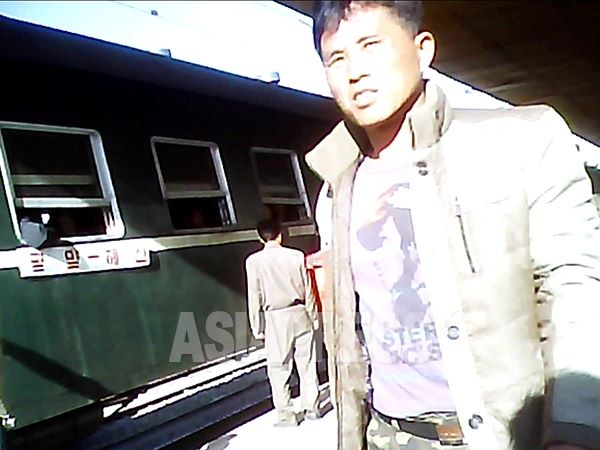
Following the outbreak of COVID-19 in January 2021, North Korea’s economy has continued to get worse, leading to increasing poverty among the country’s residents. The worsening economy has led to young people perpetrating violent acts or leaving their assigned workplaces to earn money in private groups. The authorities have moved to crackdown on these activities through on-the-spot punishments. In late April, an ASIAPRESS reporting partner in the northern part of the country gave their take on the situation on the ground. (KANG Ji-won)
◆ Gang violence
A reporting partner in Yanggang Province told ASIAPRESS recently:
“Life has gradually gotten worse, which has led to an increase in young people causing various problems. They run astray, forming gangs that fight each other, or perpetrate violence at their workplaces. Increasingly, some simply leave their assigned workplaces and try to earn money in groups on their own. The authorities have deemed this a ‘non-socialist phenomenon’ and are aggressively punishing people involved in such activities.”
The reporting partner provided details about several incidents involving “violent young people” that had recently taken place.
A former soldier working at a paper factory in Hyesan showed up late to work. After being chewed out by his boss, the man got so angry that he beat his boss. The former soldier was given three months of reform through labor as a result.
In early April, gangs of young people in Hyesan got into a fight, with one gang attacking the home of a member of another gang and destroying the house. The incident led to serious injuries among those involved, including one who suffered serious damage to his skull and a broken arm. Four members of one of the gangs were arrested and immediately given three months at a forced labor brigade. The leader of the attack was a former soldier in his 30s and was also a party member.
※ A "forced labor brigade” is a "short-term forced labor camp" where those who are deemed to have disturbed the social order, disobeyed the authorities, or committed minor crimes are detained without judicial procedures and sentenced to forced labor for up to one year. These camps are in cities and counties throughout the country and are managed by the security bureau (police).
Another reporting partner had this to say:
“Young people are forming brotherhoods with each other and doing things in groups. Ordinary people are scared of the things these gangs are doing. The police are trying to combat the rise of the gangs, even sending them to reform through labor camps in serious cases.”
◆ People creating their own private organizations are punished for being “non-socialist”
The authorities are not just cracking down on those perpetrating violence. They are also increasing their crackdowns on people trying to earn money. A reporting partner told ASIAPRESS:
“Right now, it’s difficult for everyone to survive. Workplaces barely provide people with monthly wages. People can’t survive off just a little bit of rations from the government. Young people are involved in logistics or construction-related activities, forming teams with other colleagues to earn money.”
At state-led apartment construction projects, the country’s wealthy entrepreneurial class, also known as the donju, are promised several apartments in one building for investment purposes. After the apartments are completed, they sell the apartments for money. Construction projects require labor, particularly those with professional skills. Some young people served on projects constructing “special villas” for the Kim family during their military service, so there are people who have experience with construction work, installing tiles, and completing interiors.
“They receive daily wages from the state-run enterprises managing the construction work that employ them. I hear that the wages these days are 15 yuan or 12,000 won (around 2,870 South Korean won). They are organizing together, so there’s a growing amount of work available.”
That being said, the authorities consider this to be going against the socialist order and have punished young people as a result. North Koreans with assigned workplaces are required to be involved in “organizational life.” Workplaces integral to struggle sessions, labor mobilizations and other forms of control exerted by the government on the workforce.
“That young people came together and created their own private organization was considered non-socialist because it was outside of the country’s organizational life. Young people are very unhappy about this because the people involved weren’t involved in violence but were just trying to earn some money.”
※ ASIAPRESS communicates with reporting partners through Chinese cell phones smuggled into North Korea.
- <Investigation> The authorities start crackdowns based on the Pyongyang Cultural Language Protection Act (1)… “Eliminate South Korean speech, dialects, and loanwords”… The maximum punishment is execution
- <Investigation>Increase in wandering homeless people throughout North Korea…poverty-stricken elderly people and children forced out into the streets, with some even dying…The authorities order thorough measures to be taken
- <Interview with N. Korean> Farm mobilizations start early this year amid orders to mobilize “every able-bodied person,” How about the situation on the ground
- <Inside N. Korea>The authorities strengthen punishments toward those engaging in the “non-socialist” practice of living together outside of marriage, even dragging violators in front of public trials and punishing them with forced labor
- <Inside N. Korea> “Just one piece of laundry soap and a couple kilograms of corn…” ASIAPRESS asks N. Koreans about the special rations for Kim Il Sung’s birthday
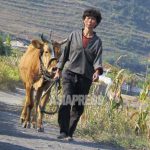
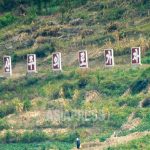
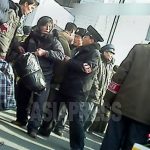
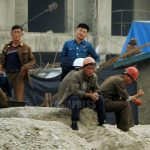
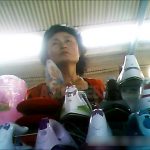
![[Video Report] Kim Jong-nam assassinated. What do N.Koreans think about it?](https://www.asiapress.org/rimjin-gang/wp-content/uploads/2018/07/20170225-00068075-roupeiro-000-8-view-150x150.jpg)



















